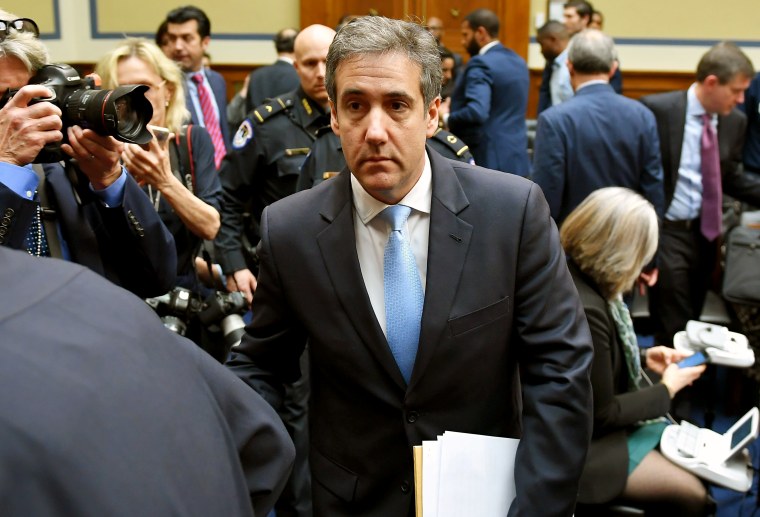Among the most serious of the allegations against Attorney General Bill Barr are concerns that he intervenes in criminal cases for brazenly political reasons. As regular readers know, the result is a dynamic in which there appears to be two parallel systems: one for cases that the president cares about, in which Barr has played a direct and personal role, and another for the rest of the justice system.
The latest reporting from the New York Times brings the scandal into sharp relief.
Shortly after he became attorney general last year, William P. Barr set out to challenge a signature criminal case that touched President Trump's inner circle directly, and even the president's own actions: the prosecution of Michael D. Cohen, Mr. Trump's longtime fixer.
As Rachel noted on the show last night, the reporting paints a rather extraordinary picture. Cohen, who made an illegal hush-money payment to a porn star at the president's behest, had already pleaded guilty by the time Barr became the nation's chief law-enforcement official early last year.
It wasn't long, however, before the new attorney general took a personal interest in the case that upset the president, "questioning" prosecutors in the Southern District of New York (SDNY) about their decision to charge Trump's former fixer. The NYT's report added, "At one point during the discussions, Mr. Barr instructed Justice Department officials in Washington to draft a memo outlining legal arguments that could have raised questions about Mr. Cohen's conviction and undercut similar prosecutions in the future, according to the people briefed on the matter."
This tells us, among other things, that Barr's willingness to intervene in cases relevant to Trump began almost immediately after his swearing in. And while I can't speak to the newspaper's sources, it also suggests officials in the SDNY are starting to push back against the scandal-plagued attorney general as Barr targets their office.
But taking a step back, there's an even more important overarching question: why is it that prosecutors only charged Cohen in the hush-money case? Especially since Cohen didn't personally benefit, and he was only acting to benefit someone else -- in this case, the sitting American president -- who effectively commissioned the felony? Even as prosecutors identified others who were directly involved in the case, including those at the Trump Organization?
Perhaps it had something to do with William Barr's willingness to personally pressure prosecutors in the case -- reportedly even questioning the decision to charge Cohen in the first place, despite his guilty plea.
This new reporting, of course, comes the same week as a congressional hearing in which Justice Department officials testified under oath about political intervention in cases of interest to the president.
University of Michigan law professor Barbara McQuade, a former U.S. Attorney and an MSNBC legal analyst, added this week, "I think Barr's conduct has made it clear that he is not acting as the attorney general for the people of the United States, but as a private attorney to protect the interests of the president. What can be done about William Barr? I really think the only thing that can be done is impeachment. And I think that this Republican Senate has shown it doesn't really have any appetite for that."
The assessment seems more than fair given the circumstances, though as the controversies surrounding the attorney general grow more acute, and as the rule-of-law emergency becomes more painfully obvious, the discussion about Barr's political fate is growing louder.
House Judiciary Committee Chairman Jerry Nadler (D-N.Y.), who'd previously downplayed the possibility of impeaching the A.G., suggested on Wednesday that he was re-thinking his position. House Speaker Nancy Pelosi (D-Calif.) was dismissive of the idea yesterday, though it's worth remembering that Pelosi adopted a similar posture on Trump's impeachment -- before the weight of the facts left her with little choice.
Watch this space.
